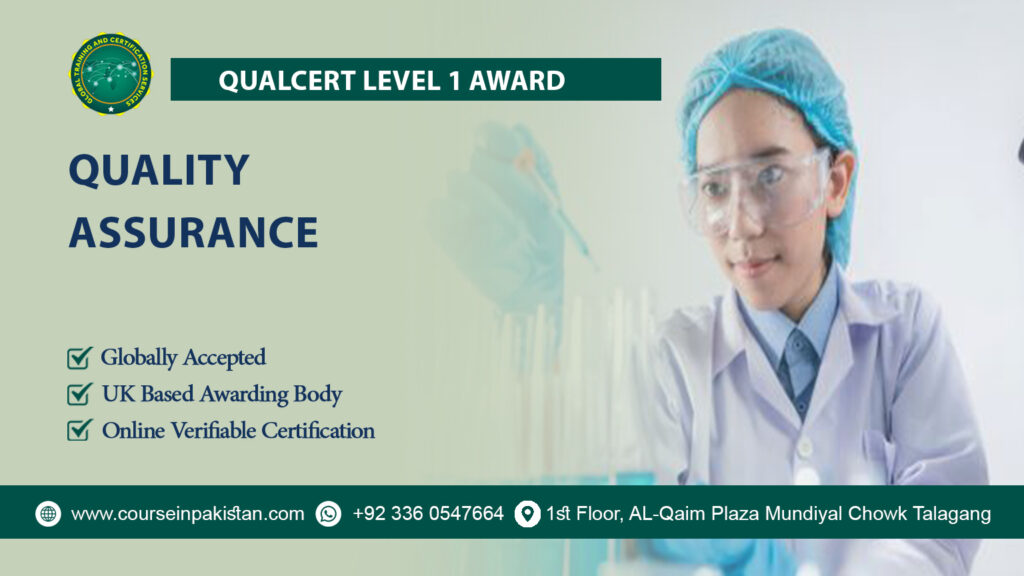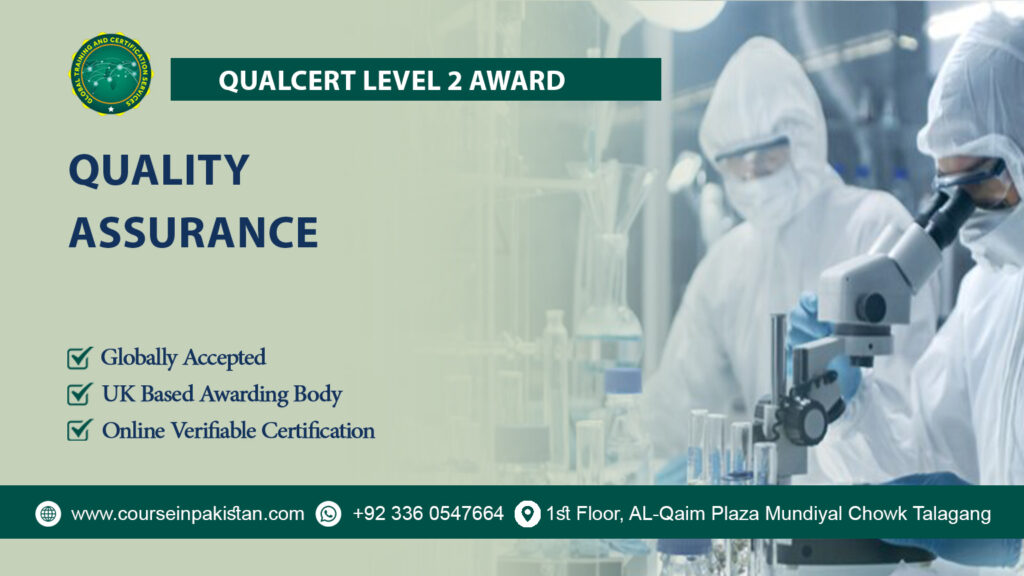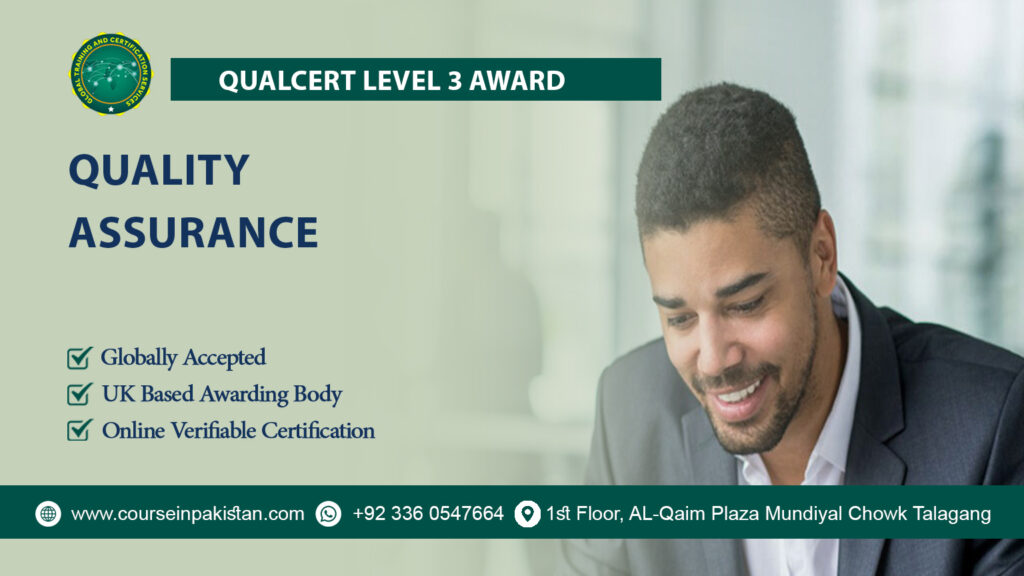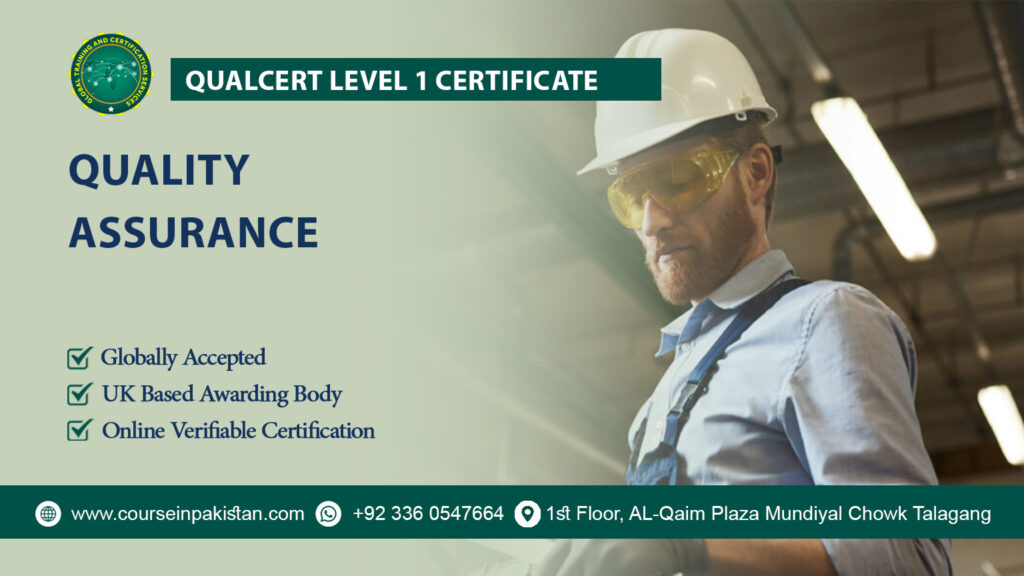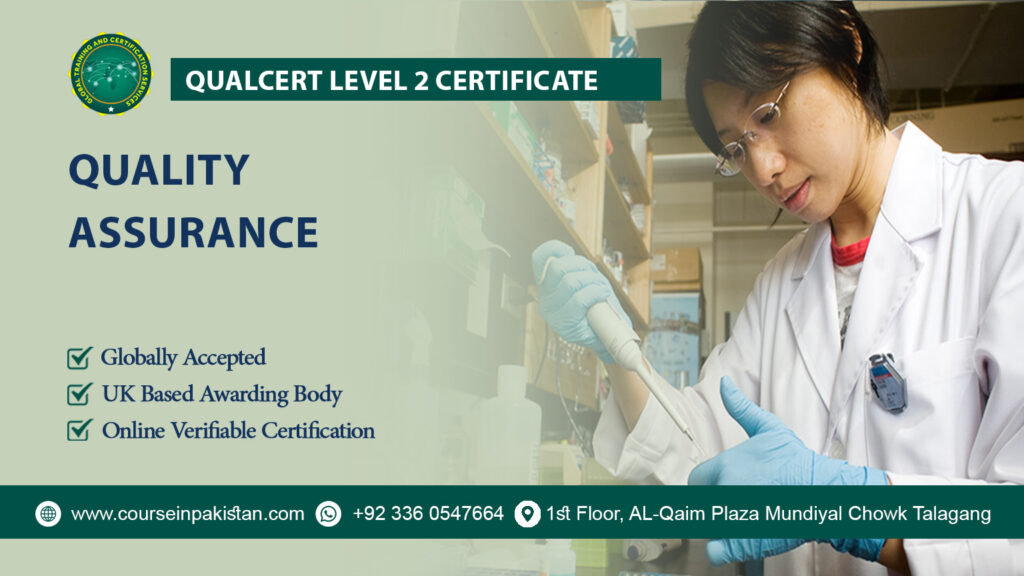Quality Control / Quality Assurance QC QA Course in Rawalpindi
In today’s dynamic industrial landscape, delivering top-quality products and services is no longer optional—it’s a necessity. Whether you’re in construction, manufacturing, IT, pharmaceuticals, or engineering, maintaining high standards is essential to success. That’s where Quality Control (QC) and Quality Assurance (QA) come into play. These two quality management disciplines, though closely related, have unique roles in ensuring operational excellence. If you’re based in Rawalpindi and looking to launch or upgrade your career, enrolling in a QC/QA course in Rawalpindi can be a smart, future-ready decision.
What Is Quality Control (QC) and Quality Assurance (QA)?
Quality Control (QC) involves the inspection and testing of products or services to identify and fix defects before delivery. It’s a reactive process that ensures the final output complies with set quality benchmarks.
Quality Assurance (QA) is a proactive approach that focuses on refining the production process itself. It ensures consistency, prevents errors, and fosters long-term process improvements through standardized protocols, training, and audits.
Key Differences Between QC and QA
| Aspect | Quality Control (QC) | Quality Assurance (QA) |
|---|---|---|
| Definition | Detects and corrects defects in finished products | Prevents defects by optimizing processes |
| Focus | Product-oriented | Process-oriented |
| Approach | Reactive | Proactive |
| Techniques | Inspections, tests, sampling | Audits, documentation, training |
| Responsibility | QC inspectors, testers | QA managers, engineers, and system auditors |
| Timing | Final stage of production | Ongoing throughout the process |
Importance of QC/QA in Civil, Electrical, and Mechanical Industries
In sectors like civil, electrical, and mechanical engineering, implementing QC and QA practices is critical. Here’s why:
- Ensures Safety and Compliance
- Civil: Guarantees structural integrity in roads, bridges, and buildings.
- Electrical: Prevents hazards like short circuits or fire risks.
- Mechanical: Minimizes machine failures through reliability checks.
- Improves Product and Project Quality
- Enforces material standards and correct construction methods.
- Validates performance of circuits, components, and machinery.
- Enhances product life cycles and functionality.
- Reduces Cost and Waste
- Early defect detection prevents rework and waste.
- Minimizes equipment breakdowns and associated maintenance expenses.
- Ensures efficient use of resources and timely project delivery.
- Boosts Customer Satisfaction and Trust
- Promotes brand reputation through consistent quality.
- Attracts clients through recognized certification standards.
- Reduces customer complaints and warranty claims.
- Facilitates Regulatory Compliance
- Aligns with standards like ISO, IEC, and ASME.
- Meets local and international safety and quality codes.
- Supports sustainability and environmental compliance.
Why Enroll in a QC/QA Course in Rawalpindi?
Rawalpindi, a hub for industrial and technical training in Pakistan, offers excellent opportunities for individuals aiming to build careers in quality control and assurance. A professional QC/QA course provides:
- In-Demand Skills: Learn inspection techniques, quality standards, process audits, and documentation.
- Certifications with Global Recognition: Acquire credentials that open doors in both local and international job markets.
- Career Diversity: Train for roles like QC Inspector, QA Analyst, Quality Engineer, or Compliance Auditor.
- Industry-Relevant Curriculum: Tailored content for key sectors such as civil, mechanical, electrical, pharmaceutical, oil & gas, and manufacturing.
- Higher Earning Potential: Skilled professionals with certifications often earn significantly higher wages.
Industries That Rely on QC/QA Professionals
A QC/QA qualification prepares you for roles in diverse industries, including:
- Construction & Civil Engineering: Ensuring material testing and code compliance.
- Electrical & Mechanical Engineering: Monitoring safety standards and process efficiency.
- Manufacturing: Reducing defects, inspecting outputs, and maintaining productivity.
- Pharmaceuticals & Healthcare: Ensuring drug and device safety through rigorous QA protocols.
- Food & Beverage: Maintaining hygiene standards, regulatory compliance, and product quality.
- Oil & Gas: Overseeing equipment reliability and environmental safety.
Global Career Prospects After Completing a QC/QA Course
With international standards becoming the norm, professionals with QC/QA qualifications from Rawalpindi can explore job opportunities in countries like:
- Saudi Arabia
- UAE
- Qatar
- Oman
- United Kingdom
- United States
- Canada
- Australia
Global firms prioritize quality and regulatory compliance, making certified QC/QA professionals valuable assets across continents.
Career Opportunities in Pakistan After a QC/QA Course
Pakistan’s expanding industrial base creates strong demand for trained QC/QA professionals. Key sectors hiring include:
- Textile and Apparel
- Pharmaceutical Manufacturing
- Automotive and Electronics
- Construction and Infrastructure Development
- Oil and Gas Exploration
- Food Processing and Packaging
Popular Job Roles:
- QC Inspector
- QA Analyst
- Quality Engineer
- ISO/Internal Auditor
- Compliance Officer
- Production Supervisor
Final Thoughts
Enrolling in a Quality Control / Quality Assurance (QC/QA) course in Rawalpindi can be your stepping stone to a lucrative and stable career in quality management. With industries increasingly focusing on international standards, the demand for qualified QC/QA professionals continues to rise. This course not only equips you with essential skills but also gives you a competitive edge in both domestic and international job markets.

